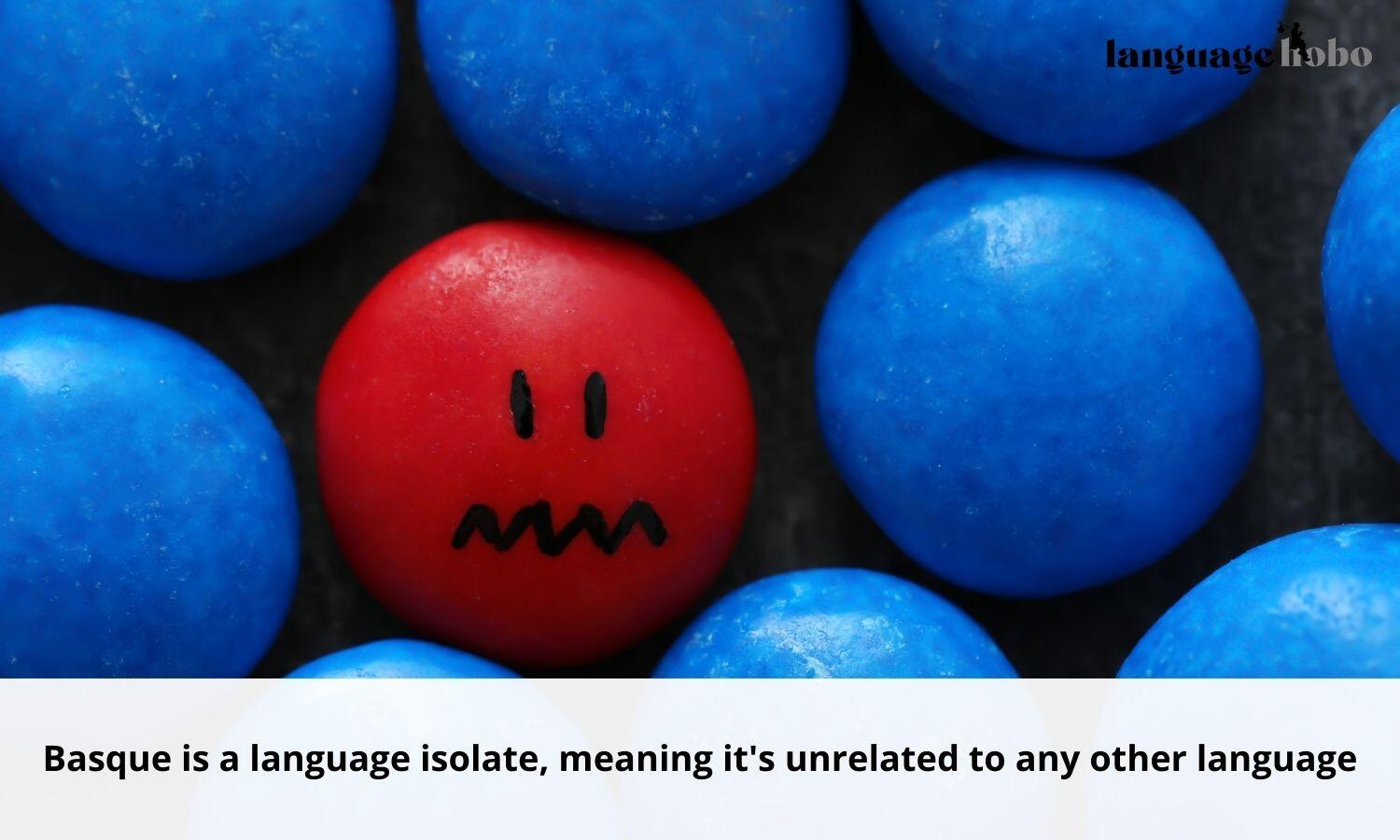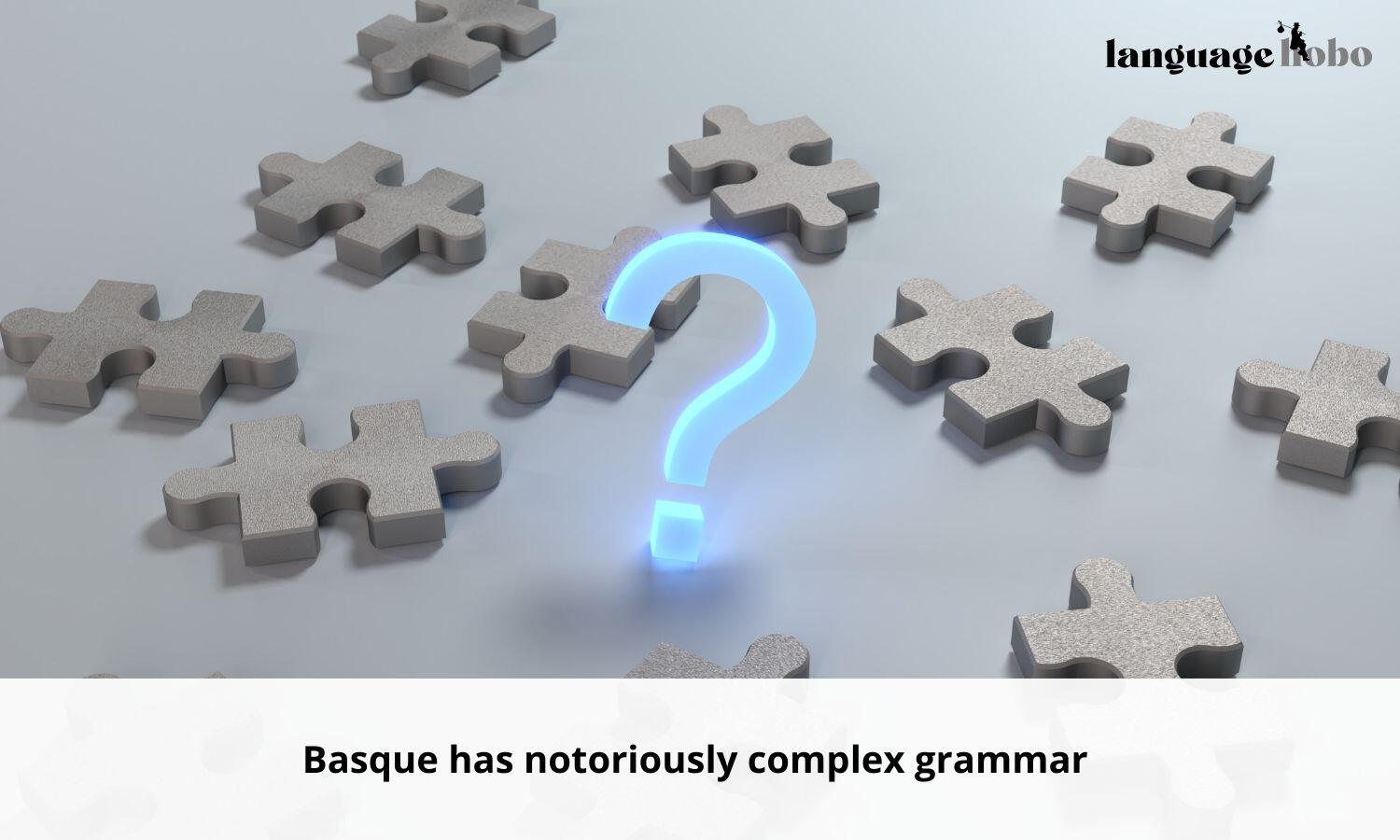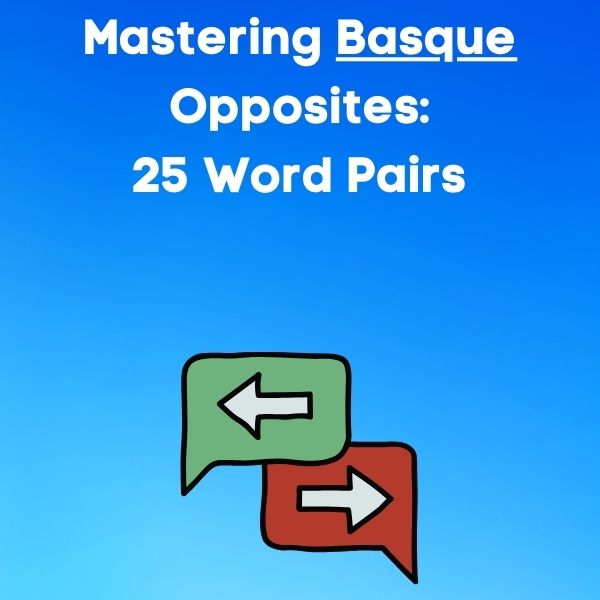Is Basque A Hard Or Easy Language To Learn?
When deciding whether to learn a new language, one of the first questions that come to mind is how difficult it will be. This is important to ascertain because it can help set expectations and give you a better idea of how long it might take to become proficient or see any meaningful results.
Several factors contribute to how easy or difficult a language is to learn, such as its grammatical structure, whether it uses a different alphabet or writing system, or its similarity to the learner’s native tongue.
In this article, we’ll take a look at the Basque language and explore the different aspects of the language that might make it difficult for English speakers and others to learn.
Why is Basque so hard to learn?
Basque has many features that make it unique among other European languages.
Basque is a language isolate
A language isolate is a language with no known linguistic relatives, meaning it’s not related to any other known language. This makes Basque quite different from languages like French or Spanish, which are descendants of Latin and share many common features.
Basque, although spoken in Europe, doesn’t belong to the Indo-European family of languages, which includes most European languages. It is, for all intents and purposes, an orphan.

(For a deeper look at the origins of the Basque language, check out The Basque Language: Origin, Speakers, And Similarities To Other Languages.)
So what does this mean for learners? Well, for one, there are no cognates. Cognates are words in two languages that have a common etymological origin and thus share a similar meaning, spelling, and pronunciation. They’re often useful in helping learners connect new vocabulary with familiar words.
Because Basque has no known linguistic relatives, there are no cognates. This makes learning vocabulary much more difficult for pretty much everyone, as there are no familiar words to aid in memorization.
Basque is spoken in a small region
Basque is spoken in a relatively small area in Europe. It’s an official language in two countries: Spain (in the Basque Country region) and France (in the Pyrénées-Atlantiques department).
This might not seem like a big deal, but it does have an impact on the language’s reach and therefore its potential pool of speakers.
The fact that Basque is spoken in such a small area also means that there aren’t many opportunities to hear or use the language. This can make it difficult to become proficient, especially for learners who don’t live in the Basque Country.
Basque has a complex grammar
Basque grammar is notoriously complex.
Firstly: the language has a unique system of verb conjugation that isn’t found in many other languages. There are a few verbs that always conjugate the same way. The rest of the verbs use a gerund form with an auxiliary verb. The auxiliary verb has to agree with both the subject and the object.

Secondly: Basque is an ergative language. This means that the subject of a transitive verb (a verb that requires a direct object) is treated the same as the object of an intransitive verb (a verb that doesn’t have a direct object).
What this means in practice is that the subject of a transitive verb can take any number of different forms, depending on the context. This in turn is likely to confuse learners who are used to languages with a more consistent verb agreement system.
Thirdly: Basque has a free word order, which means that the order of words in a sentence is relatively flexible. This can make it difficult for learners to know where to place adjectives, adverbs, and other words in a sentence, or indeed to figure out exactly what is being said.
These are just some of the grammatical features that make Basque a difficult language to learn.
There are several Basque dialects
Even among this small group of speakers, there is significant variation. There are 6 dialects of Basque spoken in and around the Basque Country, and although much of the vocabulary is shared, there are some differences.
Different dialects have distinct verb conjugations, various names for typical things, and varied pronunciation conventions.
It’s customary for most learning materials and teachers to focus on the standard dialect of Basque, which is known as Batua. However, this can make it difficult for learners to understand speakers of other dialects.
Not a big deal in languages with millions of speakers, but a real problem when the number of speakers is in the hundreds of thousands, as it’s more likely that many of the speakers you encounter will be using a different dialect than the one you’ve learned.
Resources for learning Basque are limited
To immerse yourself in a language and become proficient, it’s important to have access to a variety of resources, such as books, films, TV shows, music, and so on.
Unfortunately for Basque learners, resources are quite limited. Basque is spoken in such a small area and isn’t that widely known. This can make it difficult to find materials, courses, or teachers, especially if you don’t live in the Basque Country.
We hope that didn’t scare you away!
Yes, Basque will indeed be challenging for almost all learners, but it’s by no means impossible. There are, in fact, some things that make learning Basque a little easier than other languages.
What makes Basque easy to learn?
Basque has relatively simple spelling and pronunciation
The spelling of Basque words is fairly straightforward, as there are very few silent letters and most words are pronounced as they’re written.
Additionally, there are only 5 vowel sounds in Basque (compared to the English language’s 12), which makes it easier to learn the pronunciation of words.
Basque has no gendered nouns
Another feature that makes Basque easier to learn is that there are no gendered nouns. This means that you don’t have to worry about whether a word is masculine or feminine, as there is only one form of each word.
You’ll no doubt appreciate the simplicity of this system if you’ve spent any time learning a Romance language (such as French, Spanish, or Italian), where each noun is assigned a gender and the corresponding articles and adjectives must agree with that gender.
Native Basque speakers are keen to spread their language
Although resources are limited, some dedicated individuals and organizations are working hard to promote Basque culture and language.
This is as a safeguard against the language becoming endangered or extinct, as has happened to so many other languages around the world.
There are a handful of Basque language schools and courses available globally, as well as online resources, such as dictionaries, grammar guides, and so on.
Wrapping things up
So, is Basque a hard language to learn? Yes, but that shouldn’t deter you. Ultimately, it’s about your motivation and dedication.
If you really want to learn Basque, you can. It’s as simple as that. And if you want to know where to start, check out our post How To Learn Basque: The Best Methods.
Good luck!



